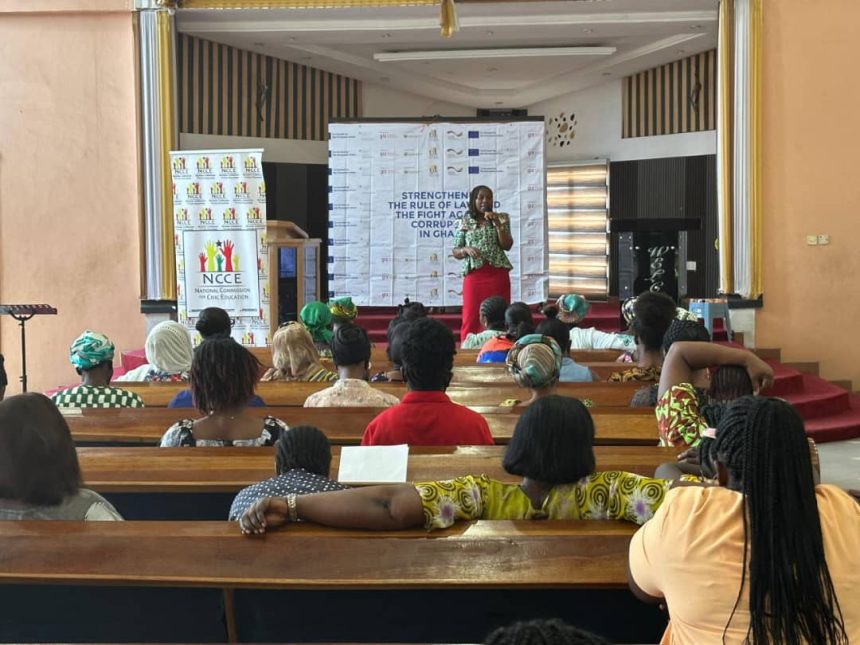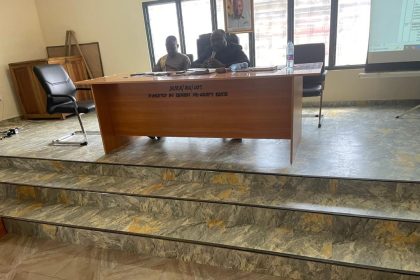The Oforikrom Municipal Directorate of the National Commission for Civic Education (NCCE) has engaged 50 women from across the municipality to deepen their understanding on rule of law and empower them to play active roles in the fight against corruption.
The forum formed part of the Commission’s ongoing civic education project, themed “Civic Engagement on the Rule of Law and the Fight Against Corruption”.
The initiative aims to educate women on their civic rights and responsibilities while equipping them to identify, resist, and speak out against corrupt practices that undermine their livelihoods.
Ms. Rosina Owoo, the Oforikrom Municipal Director of the NCCE, underscored the critical role women play in national development through their reproductive, domestic, and economic contributions.
She said the 1992 Constitution recognises the special needs of women, but also reminded participants that rights come with corresponding responsibilities.
According to her, women must faithfully perform their civic duties such as paying taxes, which help build schools, hospitals, roads, and other essential social amenities.
She further urged women to be law-abiding, report crimes, and promote a sense of nationalism by looking out for one another.
Ms. Owoo also called on the participants to be responsible custodians of public property and to priorities’ good environmental practices, noting the strong connection between environmental cleanliness and public health.
Mr. Samuel Appiah, a resource person from the Commission on Human Rights and Administrative Justice (CHRAJ), led discussions on women’s rights, access to justice, the Whistleblowers Act and forms of corruption.
He emphasised that women are entitled to all universal and special rights, including economic, political, educational, and reproductive rights.
However, he observed that barriers such as ignorance, limited education, and gender inequality often make women more vulnerable to corruption.
Mr. Appiah urged participants to familiarise themselves with the law and their rights to better defend themselves against exploitation.
He explained various forms of corruption, including sextortion, extortion, bribery, and embezzlement, cautioning women to be vigilant in their personal and professional interactions.
On access to justice, he reiterated that all citizens, regardless of gender, are entitled to fair and equal treatment before the law and encouraged women to make use of institutions such as CHRAJ and the Legal Aid Commission, which provide free legal support to citizens seeking justice.





